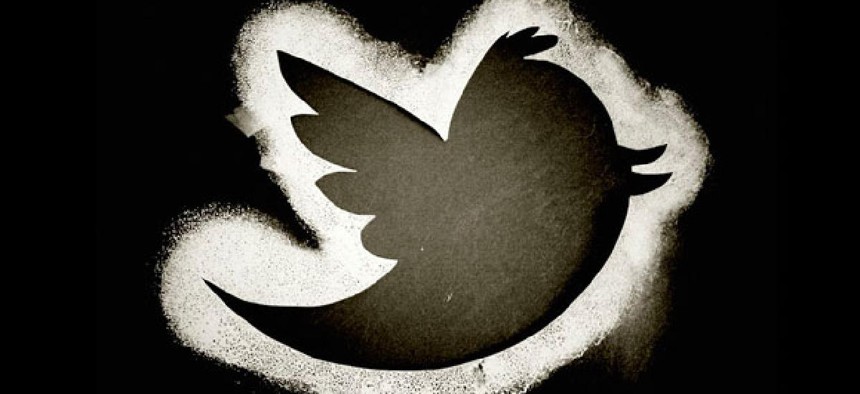Is it Illegal to Impersonate the Boston Marathon Bombing Suspects (or Anyone Else) on Twitter?

Flickr user eldh
As copycat accounts pop up, what's right, wrong and illegal?
After video of the Boston Marathon bombing suspects was released, journalists and citizen-sleuths turned to social media to find their digital footprint. They were greeted with a wealth of information. Not all of it was true.
By mid-day Friday, there were a number of Twitter accounts registered under the name of one of the suspects, Dzhokar Tsarnaev, who remained at large. Some featured photos released by the Federal Bureau of Investigation as the account’s profile picture.
News outlets including Quartz (which, like National Journal, is part of Atlantic Media) and Slate did some sleuthing and reported that one account that was receiving a lot of attention was a fake; later, ABC News reported that a different account belonged to Tsarnaev.
It’s not yet clear what Tsarnaev’s social media presence has been. But it seems implausible that he owns all of the accounts now registered in his name. Some must be impersonations (at least one is explicitly so). But can the people who created those fake accounts get in trouble?
Depends on what they say.
The clearest-cut example of a person who could face legal trouble for their Tsarnaev account is the person with the account by the name of @Dzhokar_A that features a widely-distributed photo of Tsaernaev. The owner of this account tweeted at the Boston Police’s official Twitter feed: “I will kill you all as you killed my brother.” The real Tsarnaev’s brother was killed in a firefight with police early Friday morning. Making threats against the lives of police officers is a crime, whether online or off.
But not all of the accounts under Tsarnaev’s name are making threats. Other Tweets ranged from, “am I famous yet ?” (@Dzhokharr) to “#ImSoTiredOf hearing people butcher my name. Come on everyone, sound it out!” (@dzhokartsarnae). The legal implications of those tweets are less clear. In 2012, the Supreme Court ruled that lying about military honors is not a crime. Is lying about being someone else not always a crime?
Part of it depends where you are, although due to the vast scope of the internet, it’s not clear whether whoever is behind the accounts would be subject to state or federal law or both. Twitter accounts that are less oriented toward parody and more toward impersonation could be prosecuted under federal laws criminalizing false information and threats, or hoaxes. Trying to get a laugh out of your roomate is different than trying to persuade investors to snap up a stock.
And several states have laws prohibiting online impersonation. Although they vary, generally, to be a crime, impersonation must be committed with the intention of gaining a benefit, such as money, or defrauding someone. In California, for example, “Any person who knowingly and without consent credibly impersonates another actual person through or on an Internet Web site or by other electronic means for purposes of harming, intimidating, threatening, or defrauding another person is guilty of a public offense punishable pursuant to subdivision (d).” In Massachusetts, the goal must be “to obtain or to attempt to obtain money, credit, goods, services, anything of value.”
No wonder, Poynter, a journalism website, warned reporters not to be hoodwinked by fake accounts as they raced to provide information about the now-named suspects. If false information posted on Twitter distracts the police from their work, it could be conceivably be considered an obstruction of the investigation.
Even if, say, a district attorney wanted to prosecute a Twitter faker they would "have to literally put the person in the place at the time of the criminal activity. Just because something happened or something appears to be from someone’s account doesn’t mean the person whose account it’s from actually created the content,” said Bradley Shear, a social media law expert.
Twitter, for what it’s worth, has its own impersonation policy. “Impersonation is a violation of the Twitter Rules. Twitter accounts portraying another person in a confusing or deceptive manner may be permanently suspended under the Twitter Impersonation Policy,” the social-media site says. However, “Twitter users are allowed to create parody, commentary, or fan accounts (including role-playing)… In order to avoid impersonation, an account's profile information should make it clear that the creator of the account is not actually the same person or entity as the subject of the parody/commentary.” But of course clearly labeling something a joke--say, FakeJenniferLawrence--isn't that funny. So fake sites are going to keep popping up.
(Image via Flickr user eldh)





